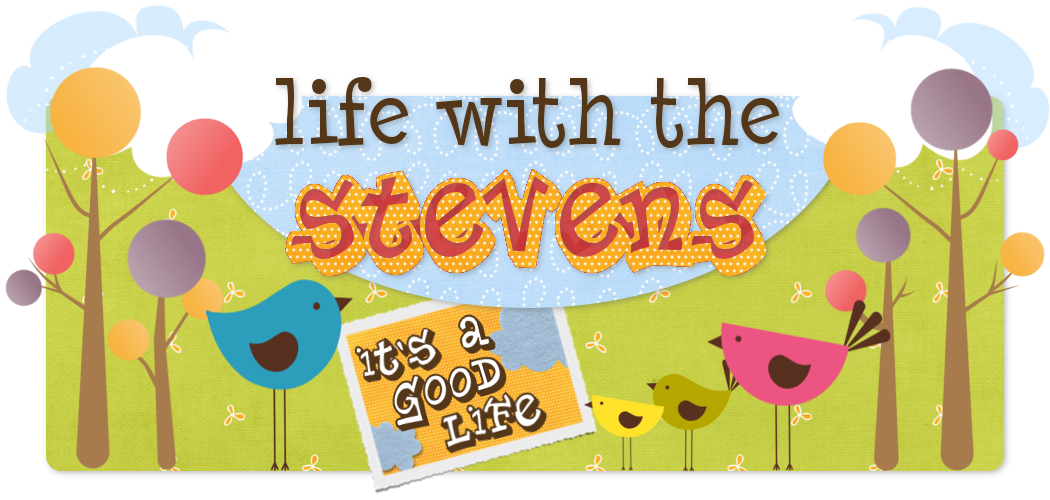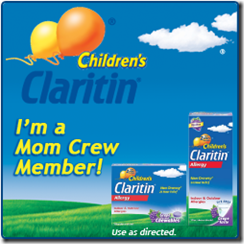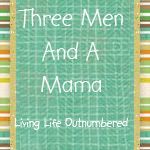 |
| The boys, and Gavin after his first surgery! |
 |
| 4 beautiful boys! Gavin before his surgery |
OK, I admit it. I was naive when it came to breastfeeding when I had my first baby. I grew up in a family where breastfeeding was the norm. I could remember my mother nursing my younger brother. It seemed easy. I was given a book as a baby shower gift a couple weeks before my first child’s birth that had a quote from a midwife that went something like, “You have breasts, a baby is born to nurse. How is it not going to work?” I did everything “right” and ….. it was not as easy as it seemed!
When I was expecting my first child in 2004, I opted to use a midwife and have an out of hospital birth, not because it was better for baby and conducive to breastfeeding, but because I am, despite the fact that I am a practicing veterinarian, terrified of hospitals and hospital protocols and needles. In particular, the medicalization of childbirth bothered me. So I chose to avoid as many hospital procedures as possible.
I knew breastfeeding was best, but I couldn’t quite see how to combine it with working the ever-changing hours I worked at the time and all the traveling for said job that was required. But I thought, breastfeeding is easy… I’ll nurse for 6 weeks, go back to work and see what happens; I’ll probably end up quitting because of the travel. And quite honestly, that was all the thought I gave nursing. I read a lot of books about natural childbirth and took a natural childbirth class taught by a doula – after all, I was planning to do this without drugs – and basic baby care, but that was about it. Even the childbirth class didn’t have a lot in it about breastfeeding.
That baby’s birth was long and drawn out. There was the three days of prodromal labor before it tipped over into the real thing that left me exhausted. There was the 21 hours of active, hard labor before I started to push. I pushed for three hours before a baby well over 11 lbs came into the world. The midwives had me nurse him right away.
The right away was in an effort to stem the hemorrhage. I was laying in a pool of my own blood, going into shock, as I was attempting to latch a baby on who was a lot more interested in looking around at the great big world he had just arrived in. The midwife was painfully internally massaging my uterus to try to make it contract so she could safely transfer me to the hospital for emergency surgery. I had an extremely severe 4th degree tear. But baby tried, and I tried, the midwife gave me a shot of Pitocin, my mother and my husband grabbed our stuff, and then we were off to the hospital.
As I went to surgery, the midwife realized the baby’s glucose was dropping and asked my husband for permission to give the baby a bottle of formula. In shock himself and scared his wife was dying, he told her it would be fine. I remember the baby’s suckling noises at the bottle and thinking, huh, I didn’t think it would turn out like this! Three hours later, the surgeon finished with me, and I could finally turn my whole attention to the baby, where I marveled at his beautiful perfection…and his sheer size! And his hunger! He woke up wanting to eat again about the time everyone left the room, with orders to me to stay in bed and not pick up the baby without assistance. Neither was a problem –the passage of such a big baby caused damage to my sciatic nerve, leaving me unable to even move my leg, and my wrists, already suffering with carpal tunnel related to pregnancy, were really quite sore from holding my legs and pushing for three hours. I was glad to be in bed, but I had to page a nurse for help.
The first nurse was kind and gentle and encouraging as she helped me latch baby on in a way reminiscent of what my mother had done, what I had seen my aunts do. I snuggled baby as he suckled himself back to sleep and chatted with the nurse about his birth and subsequent events. This was much more what I had hoped for.
But then it started to deteriorate. The second nurse walked in after I repeatedly rang for help, snapped at me that I would never be able to nurse such a big baby but if I insisted on trying she could help me try and then pointed to the formula pack over on the dresser, informing me I could get some whenever I wanted it. Another nurse walked in just after I had finally given up on her ever coming to my page and had struggled out of bed and picked the crying baby up. She took one look at my nipples and told me I’d never be able to nurse any baby, threw a nipple shield at me and left. I never saw her again, even with my antibiotics and pain medications, much less for help with the baby. I repeatedly asked to see the IBCLC – I knew they had one on staff because lactation services was listed as being available – and one nurse told me I could not see her because the baby had not been admitted to the hospital. Usually, my pages to the nurses went unheeded to start with, so I felt like I was on my own, in a situation I was already unhappy with. Someone was always coming in and out of the room, waking the baby or waking me. Baby was demanding to nurse every hour too.
Finally, I felt like I could actually take myself home – and feeling like I could have taken better care of myself and the baby on my own with my husband’s and mother’s help – and just as we were leaving, the IBCLC showed up. She took a quick look, patted my arm, said all was well and breezily walked out. I had so many questions, and she never stopped to answer them.
A day later, we took baby to the pediatrician, where we discovered he had lost about 10% of his weight at 48 hours of birth, and I had not had any IV fluids during his birth. The pediatrician, when interviewed prenatally had touted nursing and breastmilk, but then handed me two big cans of formula, as I was standing there with milk dripping down my chest, and told me, “Oh, honey, you’ll never be able to make enough milk to feed this baby. You should just quit now. You are making yourself crazy.” Halfway home, I started sobbing that I was a horrible mother because I was starving the baby, but my mother and husband recognized it was exhaustion, combined with milk hormones, and bundled me off to bed to sleep for a few hours, where I woke up with more than enough milk.
But even then, it was hard. Baby did not follow the books I finally started to read. He wanted to nurse every hour. He wanted to nurse for a long time. But I dutifully followed the advice and nursed him for 10 minutes and then switched sides. Meanwhile, he was becoming more and more fussy and I was more and more tired. I was told I probably didn’t have enough milk, since he wanted to eat all the time, and I should pump. So I fed the baby and pumped, all day long.
He was two weeks old before I threw the book across the room one night, in a pique of anger, laid down on the bed and nursed baby. He fell asleep, I dozed off too, and I woke up feeling like a new person. That was the end of trying to put baby to sleep in a crib!
However, nursing was still difficult. He arched, cried, fussed and screamed his way through feedings. If he was awake, he was crying, and he hardly slept, even in a sling. Our pediatrician, when consulted, said it was normal, that I should switch to formula, that he would outgrow it eventually, we should just let him cry it out, but if I would just stop nursing, it would get better. This went on for 8 long weeks. I even went to a local La Leche League meeting, where nobody really could help me, but I found the strength to just keep trying. There were other mothers there who had had a lot of trouble nursing but had managed, and, suddenly, I wanted to be one too. I took more time off work, and I kept working on it, even though the doctor was very negative about my efforts and felt his size -- at this point, I had a 14-15 lb 2 month old -- meant I didn’t have enough milk for him.
When baby was 3 months old, life imploded. The PPD I had been staving off became uncontrollable. My midwife had me go see a local doctor for immediate assistance, and while at the doctor’s office, I mentioned the various concerns over the baby and how I was continually being undermined about nursing. She had one of her colleagues check the baby, and it was immediately apparent to her that the baby had severe acid reflux. We started him on medication, and within a week, he was so much better. It was not the nursing; to the contrary, breastfeeding had probably helped him, but had I gotten the correct advice, we could have treated his acid reflux a long time ago. She suggested I stop pumping, as I probably had an oversupply, and that I try block feeding to make sure he got more hindmilk and to overcome overactive letdown, and he might sleep better too. And …. It was true!
I decided to leave my job and career. I realized that, even more than my milk, he was a baby who needed his mother, not a caretaker. So we worked out how to be a single income family in the Washington DC area. I made a little extra money by watching a friend’s baby, and later, I started working as a relief veterinarian on weekends.
I nursed that child until he was almost two, through plugged ducts, mastitis and other setbacks common to nursing moms. I was pregnant again, and he self-weaned as I lost my supply as the pregnancy progressed. That pregnancy ended in a late miscarriage, and he began nursing again when my milk returned. He self-weaned again when I was 20+ weeks pregnant with my third pregnancy, which resulted in a second live birth.
That birth was amazing. I had it with the same midwife, only it was easy, fast and terrific. A born nurser, that baby latched on, nursed for a couple hours, fell asleep for 12 hours and then woke up to nurse every 3 hours around the clock and did so with a minimum of crying and fussing. A wonderfully easy baby, I actually thought something was wrong with him! I called our new pediatrician, having switched to the one who had helped me with our first, and she assured me that this was the experience most mothers had. He also had some acid reflux, but medication helped him quickly and easily. I nursed him until he was about 2, and again, he self-weaned during a pregnancy.
The third baby arrived in 2008, and again, it was a tremendously wonderful birth followed by a milky babymoon. I knew how to fix all the little issues that would pop up: nurse, nurse, nurse. Watch the latch. Eat. Sleep. Nurse some more. Have good support. It was a wonderful experience. I had become active with my local La Leche League group in 2004. In 2006, I started doing mother to mother counseling on the message boards at the La Leche League website to help other moms going through rough starts too, offering the help I wished I had had when I was in their shoes, instead of attending group meetings with three active boys in tow. I also started counseling local mamas one on one and offering them support and knowledge, working with a variety of moms with many different situations. Several IBCLCs encouraged me to consider sitting for the exam.
Then in January 2011, I had our fourth son. We knew before he was born that he would have at least a cleft lip. The midwife and I both felt in his mouth after his birth and were sure he just had a cleft lip. I was jubilant, looking forward with joy to nursing what could be our last child. But he kept making this strange clicking noise. It was sort of like a tongue tie click and yet not. His tongue hurt me, so I wondered what was going on. I felt like he wasn’t latching well. The midwife and I were both puzzled. I took baby home from the birth center to practice with him, sure I could fix it, and then to the doctor the next morning, where we discovered he has a very unusual presentation of cleft palate.
The gumline and front of the hard palate is intact, but the back part of his hard palate and his entire soft palate are missing. No wonder we missed that in the dim birth center in a tiny newborn’s mouth – we only saw it at the doctor’s office when he started crying! But it explained why he was having so much trouble nursing.
I knew then that I would have to exclusively pump. So I started pumping. We rented a hospital grade pump. And I pumped. And I pumped. And I pumped. I also had three older children to care for and a household to run. And I had a baby who cannot use a bottle; he has to use a special cleft feeder, because the cleft means he cannot create suction to remove milk from a bottle. Everything came to a grinding halt.
Pumping was and is way, way harder than breastfeeding ever was! It sure is not freeing or less time consuming, as the popular conception of exclusively pumping makes it out to be!
My thoughts were filled constantly with thoughts about milk; if I got a little less than I expected, I wondered what was going on. If I had too much milk, I got plugged ducts. The hormone kick wasn’t there; I didn’t feel much of a connection with the baby. I hardly ever got to hold my own baby in the first few weeks because I had a pump attached to me; when I held him, I often had to put him down to pump just about the time he fell asleep, where he would promptly wake up and start crying. I had a lot of trouble letting down to the pump, and it would take a long time fooling with the pump and adjusting it before I started to see milk, and then it took a long time to finally finish the session. Twelve times a day. Around the clock. Every day. I spent a lot of time pumping and crying, grieving for the loss of nursing, its ease and the relationship with my baby. I set an alarm to make sure I got up to pump; often, it felt like I had just laid down to sleep, or started to eat, or gotten a drink, and the alarm would go off.
We were hit by a bad winter storm when baby was 9 days old and were without power. For the first time ever, I realized what mothers who use formula must be worried about in the face of a utility crisis…How was I going to feed the baby? I had just started storing milk in the freezer; was all my hard work going to be lost? Without power, how was I going to pump? Hand expression has never worked for me, and I was still trying to get a good supply established, so I didn’t want to rely on that and on a hand pump (which I still had from the other three babies) to pump 12 times a day. My husband went out and bought a gas generator to run the pump and the freezer, and we hunkered down in our chilly house, waiting for the power to come back on. And I pumped.
The nights were really hard. I was used to night nursing by laying down and latching baby on and at least getting some rest that way. But I had to sit up to pump, and my husband got up to feed the baby, so for the first time, he was tired too. I tried propping baby in a Boppy style pillow to feed him as I pumped, but he often choked on his feedings, so usually, nights passed in a haze of pump, feed, pump, feed with a little dozing here and there. Baby started sleeping through the night fairly early, but I had to get up to pump anyway to really get my supply started.
Baby’s weight gain was a little questionable the first few weeks, which is fairly common in cleft babies so I had to make “double-cream” bottles to feed him and get him a little more milk fat so the doctors would get off my back about his weight gain.
This went on for 12 long weeks – it takes much longer to ensure a milk supply is maximized and fully established when one EP’s – before I felt totally comfortable starting to back down on sessions to a mere 8 sessions in 24 hours, before I started letting down better and before we were comfortable with feeding our newest baby. He had his first surgery just a couple weeks later, and our cleft team was delighted when presented with a healthy and chubby baby for his lip revision. I opted to drop the night pumping sessions a few weeks later, with some trepidation but thinking if I started to see a decrease in supply, I could always add one back in….and of course, about the time I did that, baby started waking at night!
Slowly, carefully, gradually, over the last few months, I have been able to cut my sessions a little more, but as the number of sessions decreases, the time spent at each session must increase, to maintain a total number of minutes per 24 hours spent pumping to maintain supply. The other thing that happens is when you drop the night sessions, you have to make up all the time during the waking hours, so there’s only so far you can stretch the pumpings before you see a drop in supply. In some ways it helps to spread out sessions, but in other ways, EPing has gotten more difficult as time goes by….
It’s quite difficult to take my family anywhere by myself if it might overlap with pumping sessions. I can always sit and pump somewhere – at this point, I don’t have a lot of modesty left to me! -- but then, my three older kids are running loose! So our outings are short and to the point, and I’ve learned to pump and drive. We don’t go to the zoo, to the museum and things like that, which we used to do quite a lot, for now, unless I have help with me. When we do go somewhere, I end up carrying an incredible amount of stuff, and there is nothing as embarrassing – or painful – as realizing you forgot to pack an essential part of your pumping equipment and either have to go home early, express into a sink (and waste the milk you might have been counting on) or be engorged. Even worse was the time I forgot to pick up the bag with his cleft feeders and thus had no way to feed the baby! I can’t just run to any store and buy a cleft feeder. Even worse than that has been the times I thought we might only need two feeders during an outing, but baby scarfed down all his milk and either there was no way to pump or I hadn’t even brought a pump. Knowing baby is hungry, knowing you could feed him quickly and easily but that it’s not possible is heartbreaking. I quickly learned to try to pack for every eventuality; going anywhere involves a great deal of planning on my part for us to just make a simple grocery store run, and we do not do all errands in one day any longer.
As the baby has gotten older, he’s noticing there are these interesting things attached to mom, and he wants to play with them. He purposefully turns himself to kick my bottles off if I lay him next to me while I pump, or he grabs the tubing and unplugs the tubes. Trying to pump during naps is rather fruitless as he doesn’t nap at the right times of day for me to maximize my supply. My toddler sometimes comes up and plays with the pump, once in a while as I’m hooked to it (ouch). The kids were chasing each other one day and ran right into the table with the pump on it and knocked it over, cracking the casing. Just things like that. And because it’s twice as much work – I pump, feed the baby and then clean up – I don’t have a lot of time for housework and other household duties, so the house is a constant mess and we eat takeout and quick to fix meals. We homeschool our children, and I usually work in some schooling during the pumping sessions. Sometimes baby is having a fussy day and I have a hard time getting him to let me put him down for enough time to pump. Even now, even with the sessions spread out a bit, I find I forget to pump, or I get busy doing something and it’s time to pump and I have to stop what I’m doing (even with a hands free pumping bra), so it still feels like my life is run by the pump. Bottlefeeding means I never have my hands free; one arm holds the baby, the other holds his feeder. I miss breastfeeding hands-free.
All the equipment, pump parts and rental fees sure add up too. I bought a spare set of horns – once I found the right size – and connectors, just to save some time on washing up. I bought extra bottles to store milk in, but I went through a lot of freezer bags to create a huge stockpile of milk in the first few months, which really added up. I’m not sure, honestly, if formula would not have been cheaper! I tried to get the insurance company to at least pay for the pump rental, but they refused to even pay for his cleft feeders, which cost $25 each and have to be replaced every 8-12 weeks.
Yet somehow, I have managed to keep pumping for over 6 months now, to have provided him with nothing but mama milk, most of it freshly pumped, and baby is healthy and happy and growing like a weed, with no health concerns related to his cleft palate. In fact, he has not even had a cold, despite having three older siblings participating in many different activities – we sure have our fair share of germs in our family! We have recently started offering some solids in the baby-led weaning style, but he’s not terribly interested in them.
Long term goal…I don’t know. My other sons were given breastmilk for two years apiece. I would love for that to happen for him. But can I pump that long? That was my original goal, but the changes that EPing has wrought on our lives…I can’t do that for 2 years. I truly hope he will nurse post-palate repair, which will happen in early November. Honestly, that would be the best case scenario. Next best, I suppose, is that I pump for 12-14 months to make sure he has the freshest milk possible and then provide him with the frozen milk as a supplement to solids.
Do I mourn nursing? Absolutely. I shed many tears the days and weeks after learning I would have to EP. Nursing was such a big part of my mothering toolbox that not having it has been difficult. Not having the physical and hormonal connection with my baby has been hard on my heart. Oddly, I could not find much support as a BFing mom turned EPer from other EPing mothers; most had no experience with nursing a baby at the breast and could not understand what I was feeling and what I was going through, but my nursing mother friends were very supportive and caring. I received care packages from mamas all over the US, cards and well wishes, all of which helped keep me going during the darkest times.
But I am so grateful to have the ability to pump in the face of medical necessity and that my baby has been so healthy as a result. I am even more grateful for the opportunity to have nourished my babies’ minds and souls at my breast and with mama milk. I am incredibly grateful for the direction that breastfeeding has taken our family; through breastfeeding, our family has grown in love and joy and togetherness.
Disclaimer: This is a guest post, my thanks to the author for contributing her story.
































0 comments:
Post a Comment